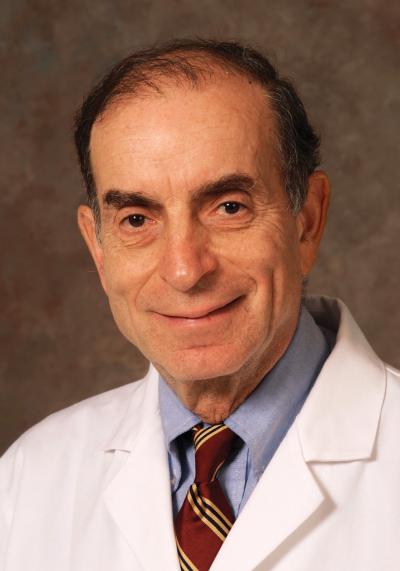Study shows that extensive testing doesn’t help predict major cardiac events

Credit: UC Regents / UC Davis Health
Most patients seen in a hospital emergency department for chest pain did not experience major cardiac events within six months following discharge, new research from UC Davis Health and Oregon Health Sciences University cardiologists shows.
Also, the few study participants who had major cardiac events within six months of discharge were not identified by cardiac testing they received while in the hospital.
Published in the June 2019 issue of the American Journal of Cardiology, the results confirm growing evidence that advanced cardiac tests for chest pain should not be routine but performed only when initial assessments indicate heart disease is likely. They also point to the need for new tools to more accurately predict the possibility of a major cardiac event.
Reason for alarm, but not always additional tests
“Chest pain should always be a cause for alarm and initiate a rapid medical response to determine if it is a symptom of blocked artery or heart attack,” said senior author Ezra Amsterdam, professor of cardiovascular medicine at UC Davis Health.
That response, Amsterdam added, should include a complete medical history focused on common heart disease risks such as tobacco use, high blood pressure and diabetes; one or more electrocardiograms to assess for evidence of heart damage or decreased cardiac blood flow; and one or two troponin tests to identify cardiac muscle injury.
“If all indications at that point are negative, there is usually little reason to administer additional tests such as cardiac nuclear scans, stress tests and angiograms, which increase time in the hospital and costs and pose additional risk without increasing diagnostic value,” Amsterdam said.
A unique look at post-discharge outcomes
Amsterdam is an expert in the diagnosis and management of chest pain, the second most frequent cause of emergency department visits in the U.S. He and his colleagues launched the Chest Pain Unit (CPU) in the UC Davis Medical Center Emergency Department nearly three decades ago to speed assessments of patients with chest pain as their primary symptom.
For the study, records of 619 CPU patients were reviewed for initial and advanced tests they received in the hospital. Post-discharge information was available for about two-thirds of the patients and evaluated to determine if any of them experienced a major cardiac event — heart attack, cardiac arrest or heart bypass procedure.
At 30 days, none had experienced a cardiac event. At six months, four had experienced major cardiac events: two received advanced cardiac testing while in the hospital and two did not. Of the two who did not, one experienced a fatal heart attack.
Striving for 100% prediction of major cardiac events
Amsterdam said there are highly sensitive methods currently being investigated to predict major cardiac events, including noninvasive imaging, blood tests and patient risk scores. Combined with a clinical history and exam, these evaluations could help better determine who should and should not get advanced cardiac testing.
“We have gotten so much better at identifying high-risk groups for major cardiac events, however we haven’t gotten to the point where we can do so 100% of the time,” Amsterdam said. “That is the goal, but we just aren’t there yet with currently available tests.”
###
Amsterdam’s coauthors were Pooja Prasad, Navya Vipparla and Sandya Venugopal of UC Davis Health, and lead author Stacey Howell of Oregon Health Sciences University. Their work received no external funding.
A copy of the study, “Usefulness of Predischarge Cardiac Testing in Low Risk Women and Men for Safe, Rapid Discharge from a Chest Pain Unit,” is available on the journal’s website.
Cardiovascular medicine specialists and subspecialists at UC Davis Health are passionate about providing the highest level of care for all patients with heart disease. The team includes nationally recognized experts in minimally invasive methods for diagnosing and treating coronary artery disease, valve disease and arrhythmias. UC Davis cardiologists are exceptional clinicians in addition to leaders in testing next-generation therapies, technologies and procedures that improve outcomes for patients worldwide. For more information, visit the Division of Cardiovascular Medicine website.
Media Contact
Karen Finney
[email protected]
Original Source
https:/
Related Journal Article
http://dx.




